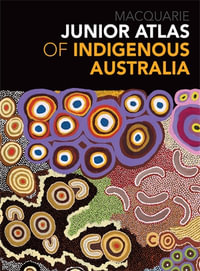For hundreds of years, the island of Sri Lanka was a crucial stopover for people and goods in the Indian Ocean. For the Dutch East India Company, it was also a crossroads in the Indian Ocean slave trade. Slavery was present in multiple forms in Sri Lanka--then Ceylon--when the British conquered the island in the late eighteenth century and began to gradually abolish slavery. Yet the continued presence of enslaved people in Sri Lanka in the nineteenth century has practically vanished from collective memory in both the Sinhalese and Tamil communities.
Nira Wickramasinghe uncovers the traces of slavery in the history and memory of the Indian Ocean world, exploring moments of revolt in the lives of enslaved people in the wake of abolition. She tells the stories of Wayreven, the slave who traveled in the palanquin of his master; Selestina, accused of killing her child; Rawothan, who sought permission for his son to be circumcised; and others, enslaved or emancipated, who challenged their status. Drawing on legal cases, petitions, and other colonial records to recover individual voices and quotidian moments, Wickramasinghe offers a meditation on the archive of slavery. She examines how color-based racial thinking gave way to more nuanced debates about identity, complicating conceptions of blackness and racialization. A deeply interdisciplinary book with a focus on recovering subaltern resistance, Slave in a Palanquin offers a vital new portrait of the local and transnational worlds of the colonial-era Asian slave trade in the Indian Ocean.
Industry Reviews
Slave in a Palanquin is one of the most remarkable and original works I have read on the history of the Indian Ocean. With her enormous scholarly gifts, Wickramasinghe endeavors to recover what she calls "fugitive lives," a project that is as much as anything a meditation on the archive of slavery-its silences, fractures, and unexpected shards of illumination. -- Sunil Amrith, author of Unruly Waters
Slave in a Palanquin is a deft exorcism of the specter of slavery for an island whose history is often simplistically cast in terms of colonizer and colonized, or Sinhala and Tamil. It is a model treatment of the diverse forms that slavery could take in the Indian Ocean world. -- Michael Laffan, editor of Belonging Across the Bay of Bengal: Religious Rites, Colonial Migrations, National Rights
At once humane, lucid, intelligent, and highly innovative, this is a masterly analysis of the various regimes of slavery in Sri Lanka under both Dutch and British colonial rule, their demise, and the reasons they were forgotten. Nira Wickramasinghe has produced a major work of comparative scholarship. -- Robert Ross, author of The Borders of Race in Colonial South Africa: The Kat River Settlement, 1829-1856
A compellingly important work by one of Sri Lanka's best historians. Slave in a Palanquin challenges narratives of purity and authenticity on an island where murmurings about descent are far too common but where memories of enslavement have been erased. By turning to forgotten records and traces, Wickramasinghe insists on the subaltern, the resistant, and the particular. As the book proceeds, Sri Lanka moves into the center of key debates in world history about labor, memory, freedom, and power. -- Sujit Sivasundaram, author of Islanded: Britain, Sri Lanka, and the Bounds of an Indian Ocean Colony
Engaging and beautifully written. * Journal of British Studies *
Highly recommended. * Choice *
This ambitious book is a vital contribution that speaks to scholarship both on the Indian Ocean and global slavery. * H-Soz-Kult *
Nira Wickramasinghe has written the most important book we have on the lives and longings of the enslaved in Sri Lanka in the 18th and 19th centuries. * Social Scientists Association *
























